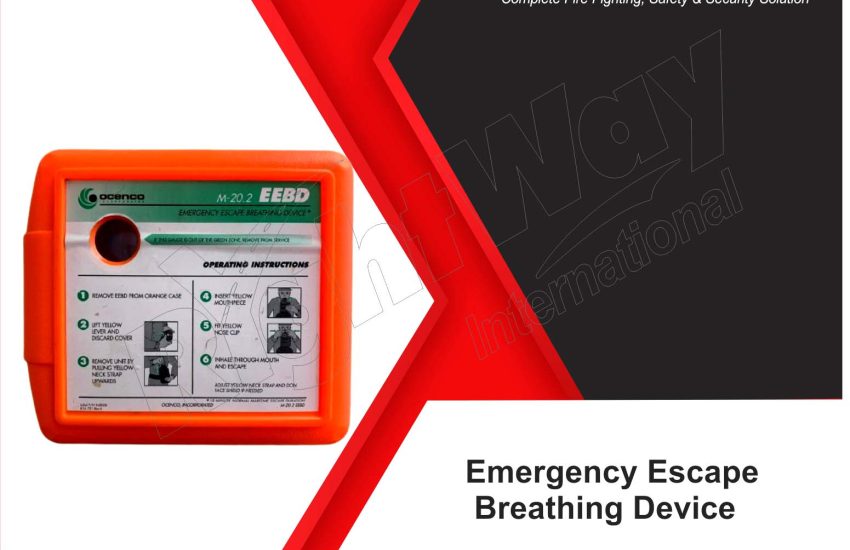EEBD Emergency Escape Breathing Device is a critical safety tool designed to provide breathable air in hazardous environments, ensuring safe evacuation during emergencies. These devices are essential in industries such as maritime, firefighting, and chemical processing. In this article, we’ll explore the key features, benefits, and types of EEBDs.
Key Features of Escape Breathing Devices
Compact and Lightweight Design
Most manufacturers design emergency escape breathing devices to be compact and lightweight, allowing for easy transport and storage. This feature ensures that personnel can carry the device without added burden, promoting quick access during emergencies.
High-Performance Breathing Air Supply
EEBDs provide a reliable supply of breathable air, typically for a duration of 10 to 20 minutes. This short duration is crucial for enabling safe escape from hazardous environments, such as smoke-filled rooms or areas with toxic gases.
Simple Operation
Emergency Escape Breathing Devices are designed for quick deployment, often requiring minimal training to operate. Users can don the device quickly, ensuring they can escape danger without delay.
Durable Construction
Manufactured from robust materials, EEBDs are built to withstand harsh conditions. This durability ensures that the device remains functional even in extreme environments.
Benefits of Using Escape Breathing Devices
Enhanced Safety Measures
Using an EEBD significantly increases personnel safety during emergencies. By providing breathable air, these devices reduce the risk of inhaling toxic fumes or smoke, which can lead to serious health issues.
Quick Response in Emergencies
EEBDs are designed for rapid deployment, allowing users to react swiftly in dangerous situations. This prompt response can be the difference between life and death during an emergency evacuation.
Compliance with Safety Regulations
Many industries require the use of EEBDs to comply with safety regulations and standards. Having these devices on hand not only meets legal obligations but also enhances overall workplace safety.
Increased Confidence
Knowing that an emergency escape breathing device is readily available can boost the confidence of workers in high-risk environments. This peace of mind encourages proactive safety measures and training.
Types of Escape Breathing Devices
Compressed Air EEBDs
These devices use compressed air cylinders to provide a breathable air supply. They are often used in industrial settings and offer a reliable source of air during emergencies.
Chemical Oxygen Generators
These EEBDs generate oxygen through chemical reactions, providing a breathable atmosphere without the need for pressurized air. They are commonly used in maritime applications where space and weight are concerns.
Self-Contained Breathing Apparatus (SCBA)
While primarily used for firefighting, some SCBA units can function as EEBDs. They provide longer air supply durations, making them suitable for situations requiring extended escape times.
Conclusion: Invest in a Quality Emergency Escape Breathing Device (EEBD)
Investing in a reliable Emergency Escape Breathing Device is essential for ensuring safety in hazardous environments. By prioritizing features such as portability, ease of use, and compliance with safety standards, organizations can protect their personnel during emergencies. Whether you choose a compressed air EEBD or a chemical oxygen generator, having an escape plan in place is crucial for safety.


